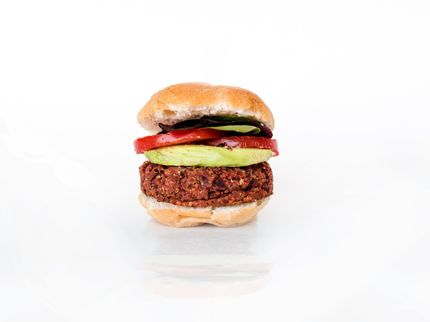Fermented cheese alternatives based on local peas
Microbially fermented cheese alternatives with huge market potential
Advertisement
An increasing number of people are reducing their consumption of animal-based foods for health, ethical, and environmental reasons. As a consequence, there is a growing market for vegetarian and vegan products. Currently high growth rates are being observed for food groups such as vegetarian and vegan meat surrogates, plant-based milk substitutes, and plant-based spreads for bread having annual sales of 1.22 billion euros[1]. In particular, sales of milk substitutes are escalating rapidly. Although plant-based milk substitutes based on soy beans, almonds, and oats are widely available in the marketplace, there is still only a small selection of plant-based cheese products. Also, the majority of these products still do not undergo the typical cheesemaking steps of fermentation and maturation for reasons of time and/or cost, meaning a variety of additives that require declaration have to be used. Consumers are often skeptical about these ingredient lists. In contrast, there is huge market potential for products based on regional raw materials that are manufactured using traditional cheesemaking processes such as microbial fermentation and maturation.
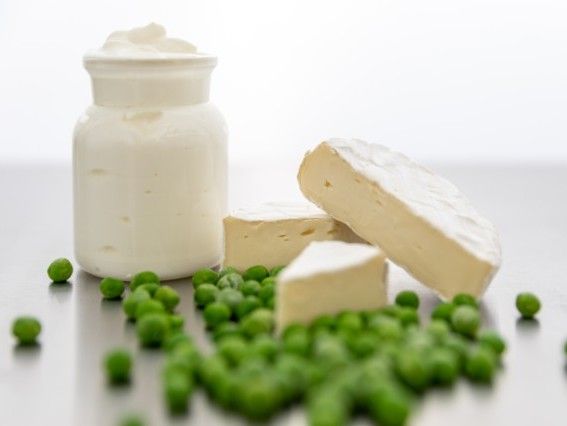
Fermented cheese alternatives based on local peas
Fraunhofer IVV
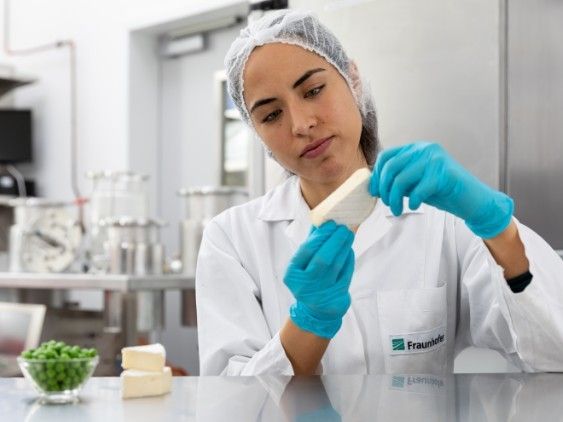
Microbially fermented cheese alternatives with huge market potential
Fraunhofer IVV
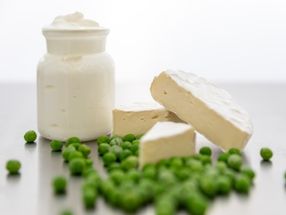
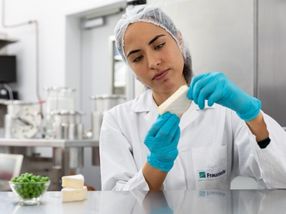
Native pea protein as an optimal raw material for fermented cheese substitutes
The pea (Pisum sativum L.) is a promising native pulse in the Fabaceae family. A feature of peas is the high protein content (ca. 20 – 25%). Their amino acid profile shows limited amounts of cysteine, methionine, and tryptophan but high amounts of lysine and arginine. Due to their regional cultivation, good availability, and non GM varieties, peas have considerably higher consumer acceptance than soy beans. Pea protein has attractive functional properties such as its solubility, emulsifying behavior, and gelling properties, making it promising for producing cheese-like textures. A challenge when using pea protein is its often strong bean-like taste. The earlier »ProFerment« project demonstrated that these undesired flavors can be lessened in various legumes by fermentation. It is thus assumed that these off-flavors should be significantly reduced during cheesemaking using traditional lactic acid fermentation.
From pea protein to milk-free cheese substitutes
The objective of the project is to develop milk-free cheese substitutes using pea protein. The products will be manufactured using traditional cheesemaking processes (fermentation of a pea drink followed by maturation).
Key aspects of the project are:
- Identification of suitable raw materials
- Development of a suitable fermentation process
- Development of a suitable maturing process
- Development of suitable finishing processes
This is a collaborative project involving small dairies and manufacturers of vegan products, an ingredient manufacturer to assist with the texture development, a gastronomic business to have direct contact with consumers, and the Fraunhofer IVV to develop the manufacturing processes.
[1] LZ. (18 April 2019). Sales of vegetarian and vegan foods in Germany from 2017 to 2019 (in millions of euros) [graph]. On Statista. Data obtained on 18 March 2020 from https://de.statista.com/statistik/daten/studie/515770/umfrage/umsatz-mit-vegetarischen-und-veganen-lebensmitteln-in-deutschland/



